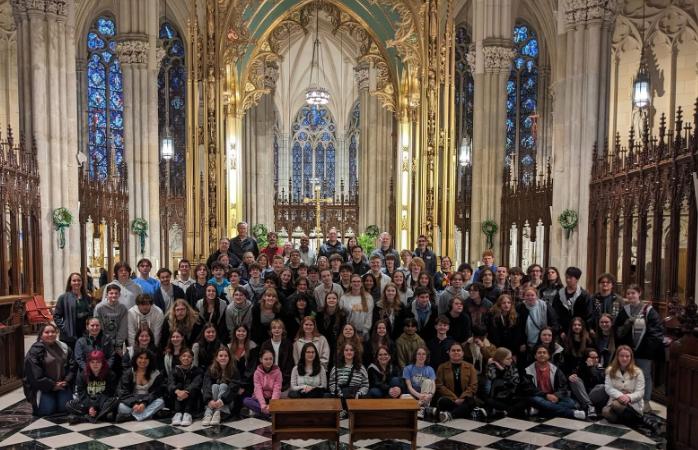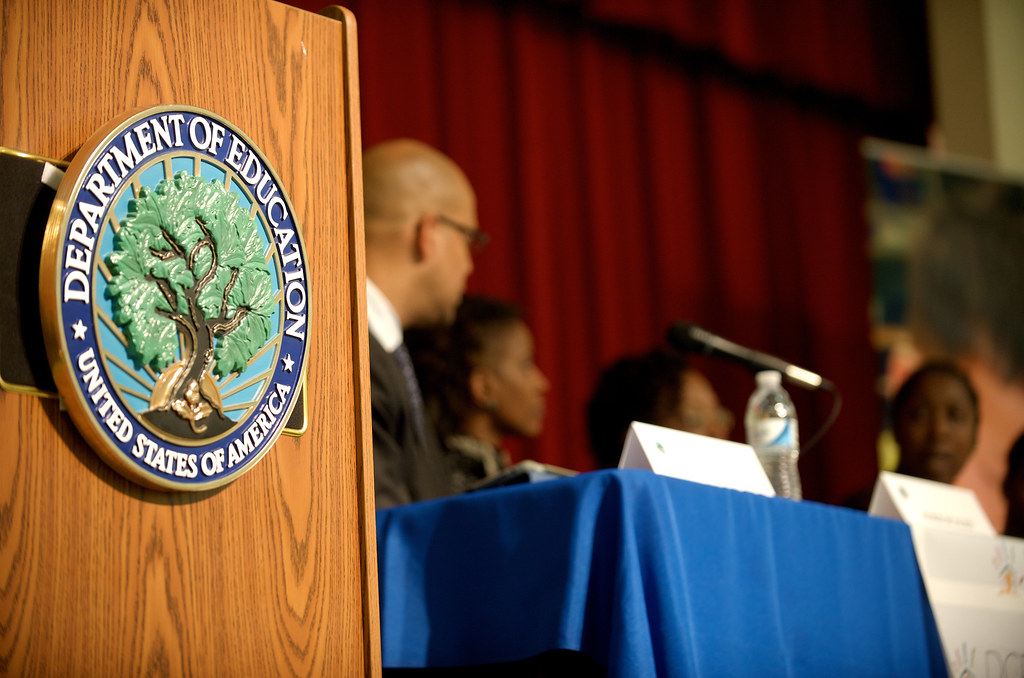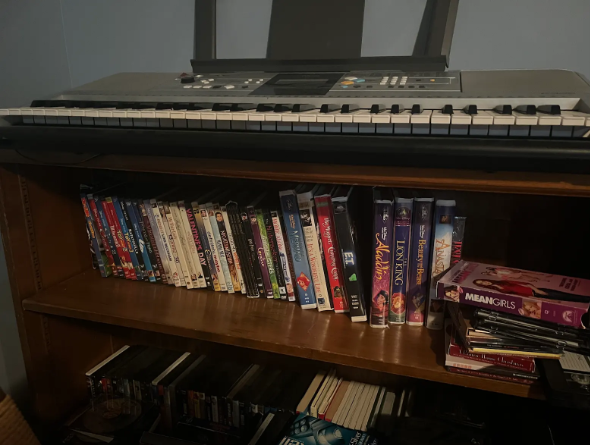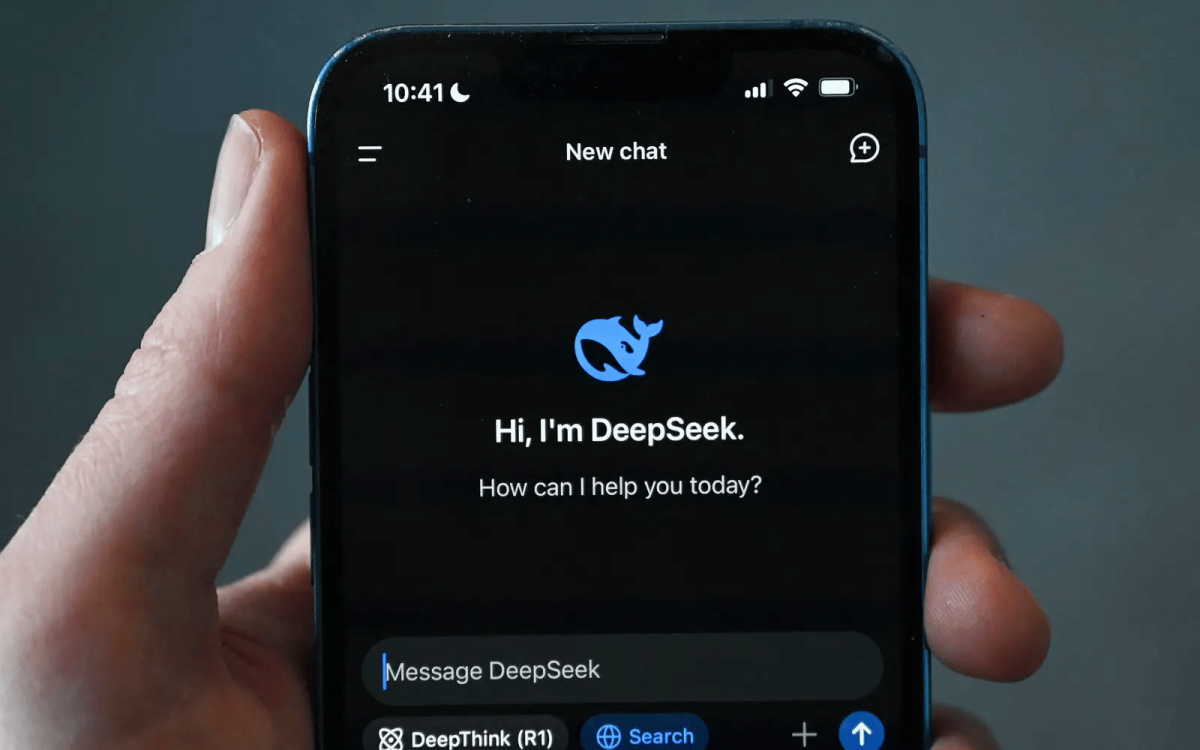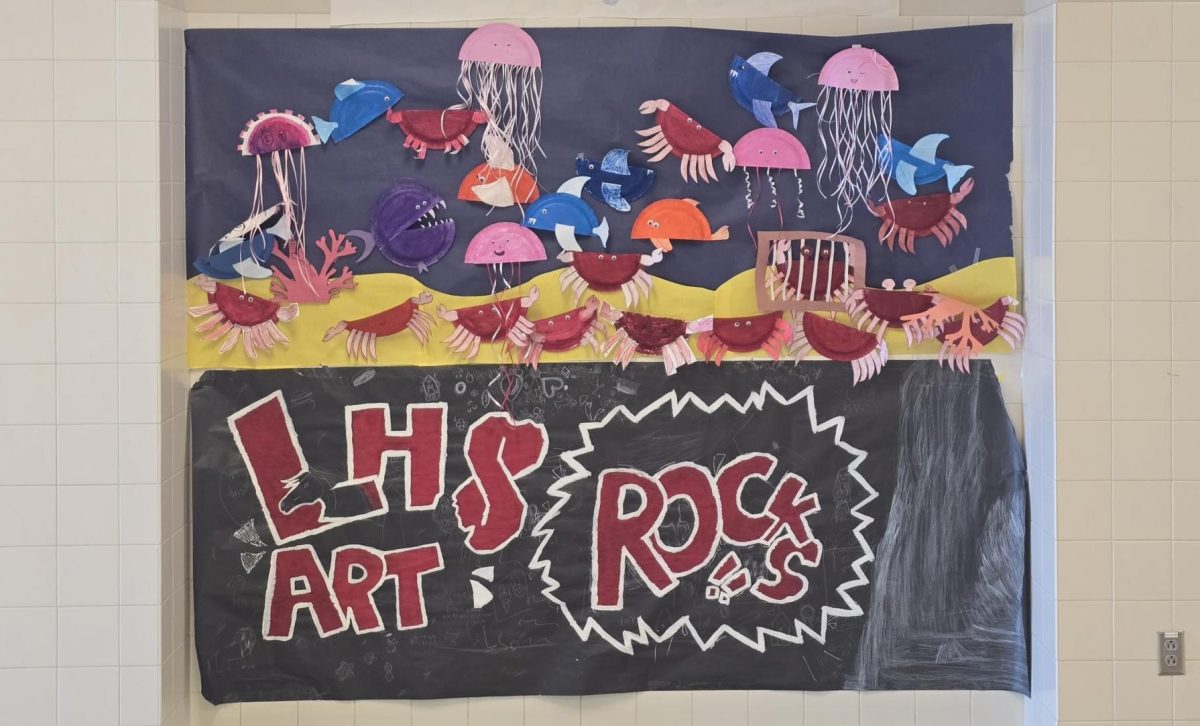
If you are a teenager in the 2020s, then it is more than likely you are on at least one social media app. Even if you do not use any social media apps yourself, you have probably heard of platforms such as Instagram, X (formerly known as Twitter) or the infamous TikTok.
Studies conducted by Sentiment have shown that about 93% of teenagers use some form of social media. This allows for teens and adults alike to interact with one another on a day-to day-basis, even if they are hundreds of miles away.
“It is the main way we communicate with each other,” said Linganore High School (LHS) sophomore Morgan Smith. “I use it for projects mostly, especially using Instagram to get people’s phone numbers [to talk about the project outside of school].”
Many have come to believe that teenagers use social media too much and that they may use it in inappropriate ways. While all forms of social media have terms and conditions that must be followed by the users, that does not stop some from using these platforms for harmful acts such as cyber bullying.
If terms and conditions are not followed by users, then it is common for the platforms to remove the account altogether. This has led some to believe that this is a violation of First Amendment rights, more specifically the Freedom of Speech and Freedom of Press clauses.
This was the case for a Reddit user from Texas. The user had responded to a post commenting “soy boy,” a term used to insult a man’s masculinity. Reddit proceeded to remove the user for cyber bullying, and in response, the user sued under Texas House Bill 20 (HB20).
Texas HB20 is an act that keeps social media platforms with more than 50 million active users from restricting posts and banning users based on the platform’s own viewpoints.
This bill and the case against Reddit has made it all the way to the Supreme Court. On February 26, the court heard oral arguments regarding the case. Although the case itself is still pending in court, it has raised many questions among teenagers and adults alike regarding their First Amendment rights on social media.
Some believe that certain speech does need to be censored, either by the apps themselves or by parents.
“Obviously, they need to censor some of the more graphic things,” said Linganore math teacher Angela Knapp.
Others believe that people should be able to post what they please without worry of it being deleted.
“I do not know if they should be deleting people’s posts without asking or anything like that because that’s infringing on freedom of speech,” said Smith.
The question about restrictions goes beyond First Amendment rights.
Social media can have a major effect on other aspects of one’s life, particularly teens’ lives. There can be an impact on someone physically, for instance when social media causes a disruption in sleep, and mentally. People can develop an addiction to the apps, and they can also expose people to cyber bullying and feelings of isolation, which might cause depression and anxiety.
According to AddictionHealth.com, about 10% of Americans are addicted to social media. Although this number seems small, this means that approximately 33 million people are addicted to social media in the United States alone.
The problems that arise from the over usage of social media are becoming more apparent by the day and new studies are being conducted on the effects. With growing awareness of the way it impacts people’s health, more states are filing suits to hold social media companies accountable.
Frederick County Public School’s (FCPS), along with Anne Arundel, Harford and Howard counties have recently decided to sue Meta, Google, ByteDance and Snap Inc. for their part in students facing both mental and physical challenges, such as depression and body image issues.
The goal of the four counties in this lawsuit is to get students the adequate health resources they need and stop the misconduct that students experience when going online.
In the Frederick News Post article on the subject, FCPS Superintendent Cheryl Dyson stated that kids between 13 and 17 consistently use social media and seem to have a problem cutting back on its use.
This is a common occurrence for many students within Linganore. Sophomore Jordis Dimmick shared her own struggles with social media addiction.
“My social media addiction started during the pandemic,” said Dimmick. “The other day I tried not using it [social media] for a day, and I could not do it.”
This very addiction is causing some states to go as far as placing a ban on social media for minors. Florida Governor, Ron DeSantis, had originally wanted to sign a law into effect that would have prevented all minors under 16 from using social media with or without parental consent. However, this bill was vetoed and replaced with a watered down version.
Ultimately, DeSantis signed House Bill 3 (HB3), which went into effect on January 1. HB3 bans anyone under the age of 14 from using social media altogether, and those between ages 14 and 15 would need parental approval. The House Bill would also require the platforms to terminate certain, already existing accounts and any newly created accounts that do not follow the bill’s guidelines.
“I do agree [with HB3] because it [social media] is really harming kids,” says LHS history and law and society teacher, Jamie Hendi. “I would even go further to say that phones should be banned from school, period.”




